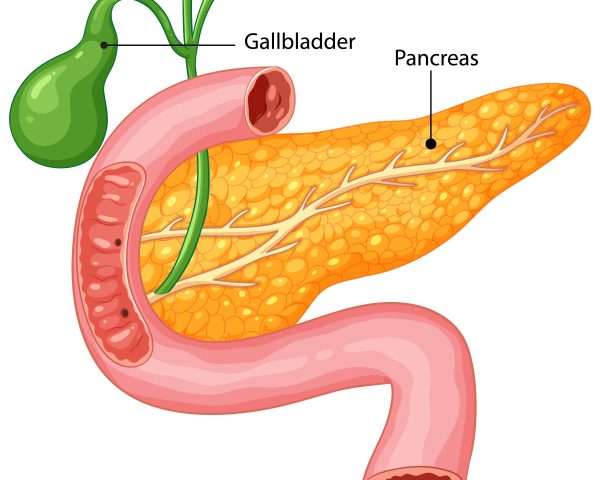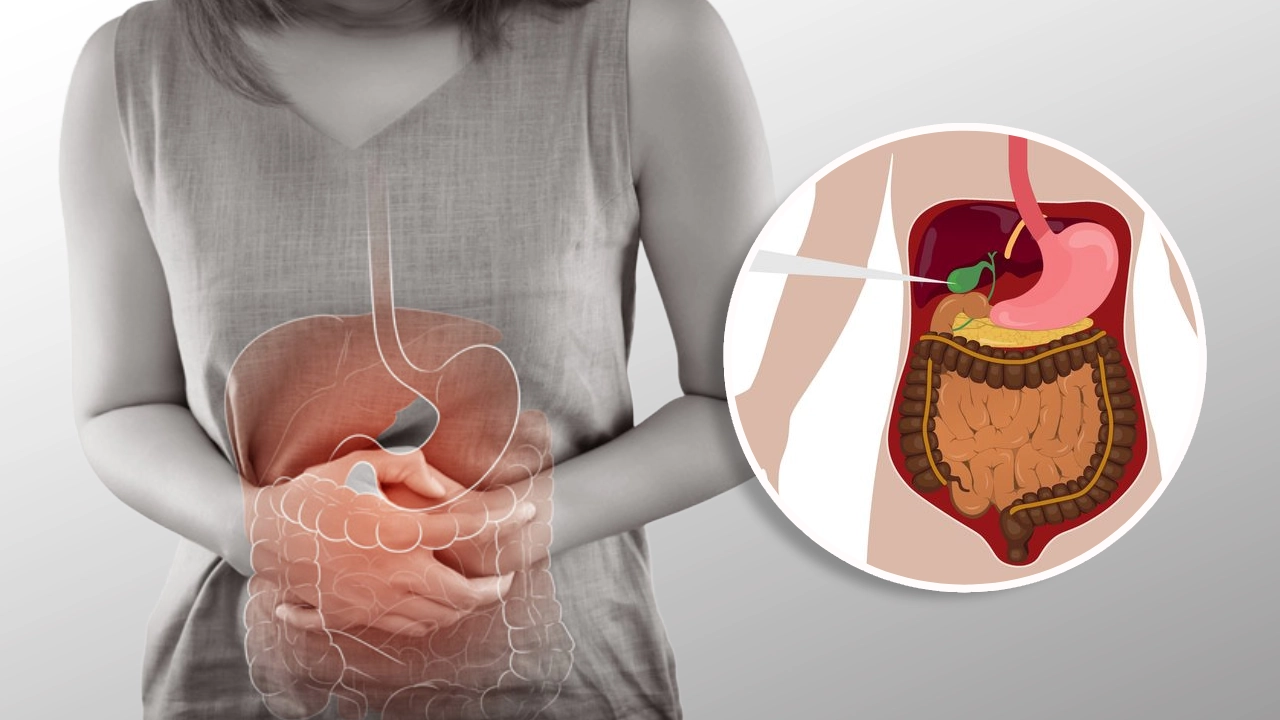Gallstones are tiny, having the texture of fairy stones, which occur in the gall bladder, which is a small organ located beneath the liver. Although they are small, gallstones can lead to various diseases, from mild cramps in the abdomen to severe pain and consequences.
In this observational reference, you will find all the information that would help you understand gall bladder stones. By the end of this article, you’ll understand:
- What gall bladder stones are and why they develop.
- The signs that are likely to be seen in any patient with gallstones are.
- Possible adverse effects and indications of healthcare provider consulting.
- The current possibilities of the therapeutic management of such conditions, which may use surgical and non-surgical approaches.
- What can be done to avoid such complications as gallstones now and in the future?
If you or someone you know is struggling with gall bladder problems, or if you’re just researching on your own, this guide will help. Let’s dive in!
What are gall bladder stones?
Gallstones are solid material that is concreted from substances in the bile, a fluid made by the liver and stored in the gall bladder. These stones can be as small as a grain of sand or as large as a golf ball and are often hard and smooth.
There are two main types of gallstones:
- Cholesterol Stones: These are the most common, accounting for 80% of gallstone cases in the population. They form when there is too much cholesterol in the bile present in your small intestine.
- Pigment Stones: Observed in cases of liver disorders, the blood illness and can be made of bilirubin.
Cholesterol gallstones can be asymptomatic, which means you may not know that you have the problem. Nonetheless, those that impede the bile duct or trigger an inflammation of the gall bladder cause pain as well as other signs that might necessitate medical intervention.


What causes gallstones?
Learning the causes of the gall bladder stones will therefore assist you in how you can prevent them. Here are some key risk factors:
- Excess cholesterol in bile: Usually, bile contains sufficient chemicals to digest cholesterol, which is brought out by the liver. However, if the liver is producing cholesterol in excess, then cholesterol forms a solid, stony structure.
- Too much bilirubin: Bilirubin is a pigment that is formed when red blood cells are metabolized in your body. Certain diseases that affect the liver, such as infections that increase bilirubin production, lead to the formation of these pigment stones.
- gall bladder doesn’t empty properly: When your gall bladder does not empty completely and/or is not frequent, this leads to a high concentration of bile-forming gallstones.
Other risk factors include:
- Being overweight or obese.
- If a woman is pregnant or a new mother, she is most likely to experience this since hormones also affect it.
- Rapid weight loss.
- A history of gallstones running in the family.
- Age, and especially middle-aged people and seniors aged 40 and over.
- Some fat dieting or some fiber-deficient diets.
Symptoms of gall bladder Stones
gall bladder stones are quite common and you could be surprised to find out that you have them without having any symptoms to show it. However, when a gallstone blocks a bile duct, it can lead to a condition known as biliary colic, which causes:
- Sudden, intense pain in the upper right abdomen: gallstones are best identified for this sign. It can also spread to your back or your right shoulder blade and it will take several minutes to a few hours to subside.
- Nausea or vomiting: gall bladder stones may lead to digestive problems and an uncomfortable feeling.
- Indigestion, bloating, and gas: This is because if a gallstone blocks your bile ducts, it would affect the normal digestion process and lead to chronic bloating and indigestion.
If the stones cause an infection or inflammation of the gall bladder (cholecystitis), the symptoms can become more severe, including:
- Fever and chills.
- Jaundice.
- Severe pain that lasts and does not cease even after a few hours.
Some of these symptoms suggest that the situation is aggravating and that medical assistance is needed.
Possible complications of gall bladder stones
While some people may live with gallstones without any issues, untreated gallstones can lead to complications like:
- Cholecystitis: An inflammatory condition resulting from the occlusion of the bile passage in the gall bladder. It may cause extreme pain, a high fever, and a possible consequent infection.
- Pancreatitis: When a gallstone reaches the pancreatic duct, it produces inflammation of the pancreas, which results in either severe, constant abdominal pain or possibly even organ damage.
- Bile Duct Infection: Gallstones are likely to cause infections in the bile ducts and if not managed properly, the diseases spread to other parts of the body.
- gall bladder Cancer: Long standing gallstones are known to pose a risk factor for gall bladder cancer, although this is a very uncommon condition.
When should you see a doctor?
One must be in a position to recognize when one needs medical help in dealing with the gall bladder. If you experience any of the following symptoms, it’s time to see a doctor:
- Chronic pain that is not relieved after a few hours.
- Nausea or vomiting with pain in the abdomen.
- Fever or chills due to possible presence of an infection.
- Yellowing of your skin or eyes.
Surgikure, which means for surgery, is the slogan that we support for timely surgery. If you found any of these symptoms in you, our skilled personnel will assess your state of health and advise you on what care plan meets your needs.


Treatment options for gall bladder Stones
In case you are diagnosed with gallstones, doctor’s at Surgikure will advise you about the right treatment depending on the intensity of the experienced complaints. The main options include:
- Watchful waiting
In case your gallstones do not bring about symptoms, it is possible you do not need to undergo an operation right away. It is not surprising that many people suffering from gallstones do not have complications for years. In some cases, your doctor may tell you to just observe your symptoms and control them through diet and exercise.
- Medications
There are medications that are used to dissolve the cholesterol based stones gradually. However, this treatment is not popular because effects can take several months to years to appear, with the stones returning if the medicine is discontinued. This option is usually considered in people who have contraindications to surgery.
- Surgical removal of the gall bladder includes open cholecystectomy, laparoscopic cholecystectomy, and surgical ERCP.
The most frequent and successful treatment of symptomatic gallstones remains surgical. This can be done through two methods:
- Laparoscopic cholecystectomy: A surgery where the surgeon operates with small cuts to remove the organ called the gall bladder. While rare, an overnight stay is sometimes required, and rarely is a patient admitted for more than a day.
- Open Cholecystectomy: In the more complicated cases, however, open surgeries are required. This is done through a cut through the abdominal wall; the recovery time after surgery is longer than that of a laparoscopic surgery.
After the gall bladder removal, your body transforms to receive foods without this organ, with no further complications in the future.
- Non-surgical treatments
In situations where surgery cannot be done, some techniques may be used to carry out the removal of the stones in the bile duct while leaving the gall bladder intact.
Prevention: how to reduce your risk of gallstones
While not all gallstones can be prevented, you can take steps to lower your risk:
- Maintain a healthy weight: Obesity causes a buildup of cholesterol in the gall bladder and hence overweight persons are prone to the formation of gallstone dissolution, which is an important characteristic.
- Eat a balanced diet: Try to include fiber-containing foods and limit the intake of fats that congest the gall bladder.
- Stay active: Physical activity, on the other hand, can maintain bowel regularity and thus decrease the incidence of developing gallstones.
- Avoid rapid weight loss: In case you are managing your weight, try to do it in a slow and consistent manner; do not resort to diets that can spur the formation of gallstones.
If you have been having the symptoms or if you think you might be having gallstones, then this is the best time to do something about it. At Surgikure, we deliver top notch quality healthcare for your condition.
So, what do you think? Reach out today to get information on how to manage your gall bladder and its diseases. You can always count on us for assistance, whether you are looking for information about how to prevent such conditions when you have symptoms that are ambiguous or if you want to discuss treatment options. Do not allow the pain to worsen—contact Surgikure and start towards freedom from pain and improved health.
Ready to learn more or would like to setup a consultation? We’re just a click away.
FAQs
- What foods to avoid if I have gallstones?
One needs to eliminate fatty foods, fried foods, and processed foods, as these foods precipitate gallstone symptoms. However, it is worthwhile to avoid drastic diets or fasting, as such diets contribute to the increase of gallstones.
- How long can gallstones last?
If gallstones are asymptomatic, then they may never go away; as such, they may remain in the gall bladder for years. However, when they begin to become uncomfortable, medical intervention is advised to avoid attached issues.
- What would be some ways that could help to avoid the formation of gallstones?
Keep a good weight, take your breakfast, include a high-fiber diet, be active, and avoid taking a very thin diet. It is also necessary to take plenty of water and restrict fat consumption in order to not to aggravate the formation of gallstones.
- When is the right time to remove gallstones?
Gallstones are best operated for when they result in symptoms such as pain, nausea, or infections. This means that, if measures are taken during the first stage, more severe problems do not develop. If you happen to be asymptomatic sometimes, you may not require surgery at all.
